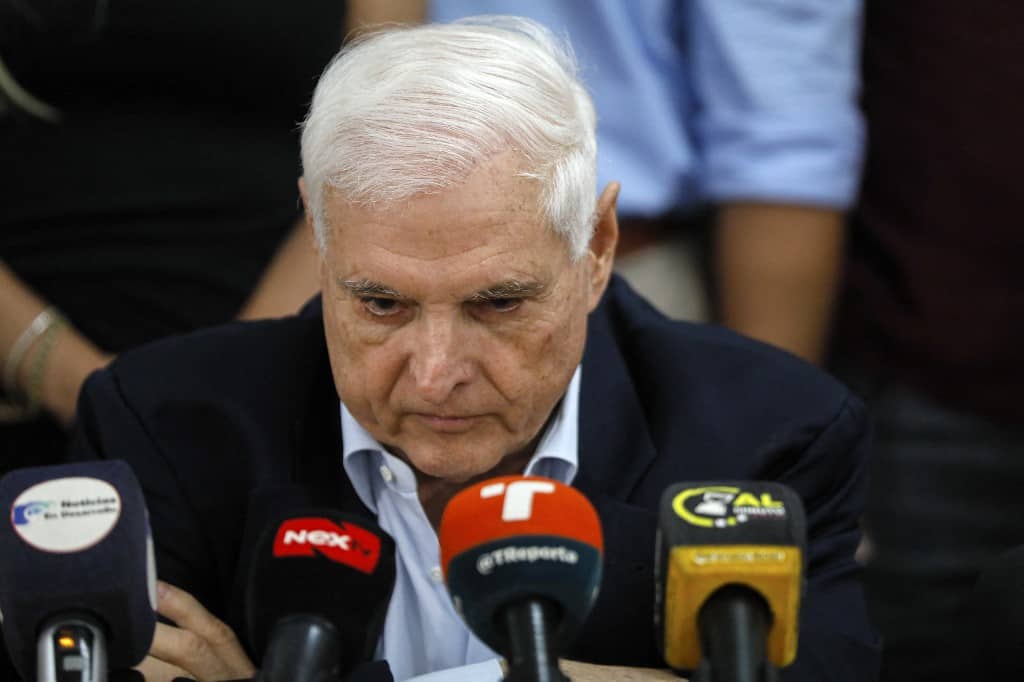Panama’s Electoral Tribunal annulled on Monday the presidential candidacy of former president Ricardo Martinelli, a month after he lost his last legal recourse to avoid a sentence of almost 11 years in prison and sought asylum in the Nicaraguan embassy.
The full Tribunal decided to “disqualify citizen Ricardo Alberto Martinelli Berrocal as a candidate for the position of president” of Panama, announced magistrate Alfredo Juncá.
The decision is due to Martinelli having been “convicted of an intentional crime with a custodial sentence of more than five years,” added Juncá, president of the Tribunal. Martinelli, who governed Panama between 2009 and 2014, aspired to return to power after the presidential elections on May 5.
However, in 2023 he was sentenced to almost 11 years in jail and the Panamanian Constitution establishes that anyone who has been convicted of an intentional crime with a sentence of five years or more in prison cannot be elected president.
Although Martinelli’s fate, who has an arrest warrant against him, was sealed a month ago after losing his last appeal before the Supreme Court, it was still necessary for the sentence to become “final” for the Electoral Tribunal to annul his candidacy.
The 71-year-old right-wing former president is in asylum at the Nicaraguan embassy in Panama, where he requested asylum from Daniel Ortega’s government, which was immediately granted. However, the Panamanian government refused to grant him safe passage to travel to Nicaragua.
From the Nicaraguan embassy, Martinelli has given interviews and made political statements, which has angered the Panamanian authorities, who have warned Nicaragua about taking diplomatic measures.
History will absolve me
“I repeat, I am innocent,” Martinelli said on Monday before the Electoral Tribunal’s decision was announced. “This case was made to politically disqualify me and take me out of the political contest, which is illegal,” added the former president on his X account, formerly Twitter.
Martinelli was sentenced last July to serve 128 months in prison and pay a $19 million fine for money laundering. The Panamanian justice system convicted him for purchasing the majority of the shares of Editora Panamá América with public money in 2010.
For that acquisition, a portion of the $43.9 million, from the payment of bribes, that different companies deposited in a complex scheme of societies was used.
The money came from the payment of up to 10% of the amount of the original contracts in public works, according to the justice system. The sentence was confirmed in October by an appeals court.
“Everything is known in the end and history will ABSOLVE me,” Martinelli wrote in his message on Monday, repeating the allegation made by the late Cuban revolutionary leader Fidel Castro, during the trial against him after the failed assault on the Moncada Barracks in 1953.
Democracy or dictatorship
Martinelli, leader of the Realizando Metas party (RM, the initials of his name), was one of the eight candidates to preside over the Central American country.
Despite his legal setbacks, he was a favorite in the polls. Now, his former Minister of Security, José Raúl Mulino, will be the standard-bearer for the former president’s party.
“Panamanians are going to have to choose between democracy and dictatorship” in the upcoming elections, Luis Eduardo Camacho, a member of RM and Martinelli’s spokesperson, told the Telemetro channel after learning of the Electoral Tribunal’s decision. “The dictatorship and its candidates are going to be defeated,” added Camacho in reference to the majority of the candidates.
Martinelli, a tycoon who owns a supermarket chain, won the 2009 elections with a strong discourse against corruption and traditional politicians. However, more than a dozen ministers and high-ranking officials from his administration were arrested for various corruption scandals.
The former president must face another trial this year for the alleged laundering of bribes paid by the Brazilian construction company Odebrecht.
In 2021, he was acquitted in another judicial process, which had to be repeated, for alleged espionage of opponents during his government.






